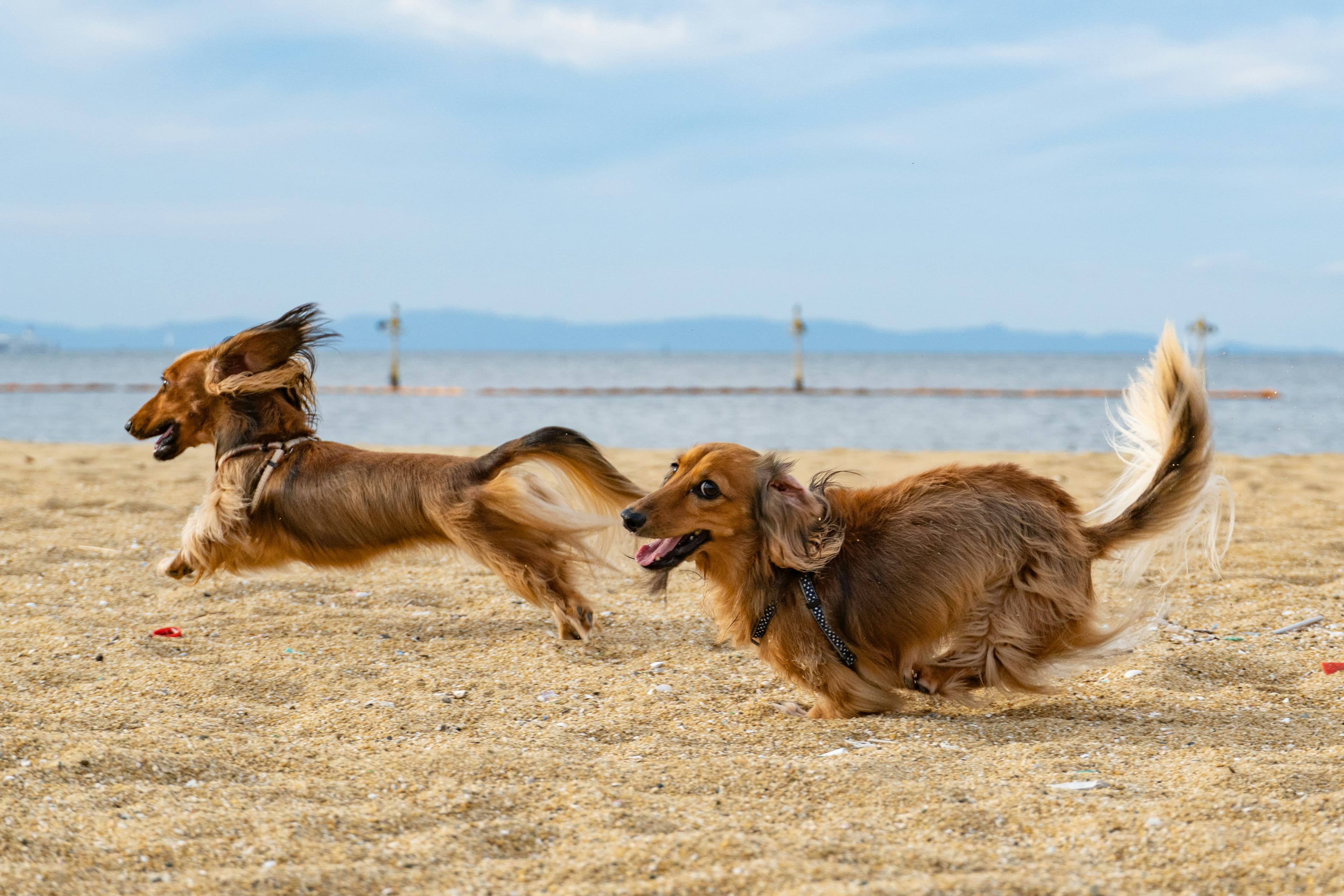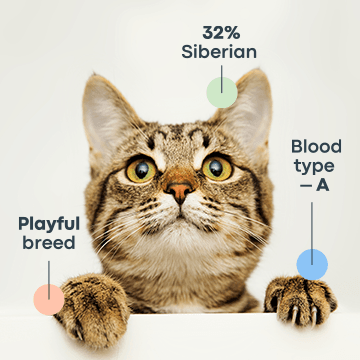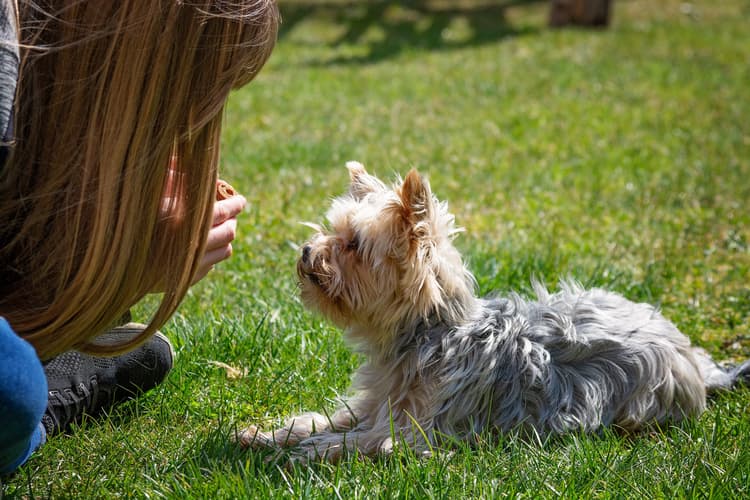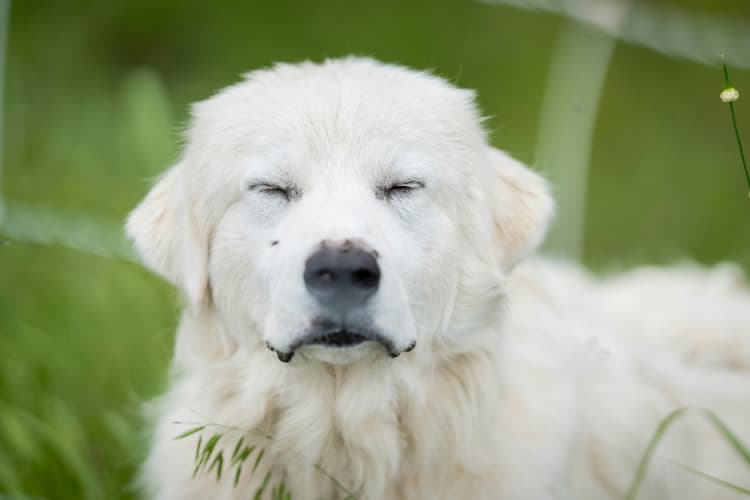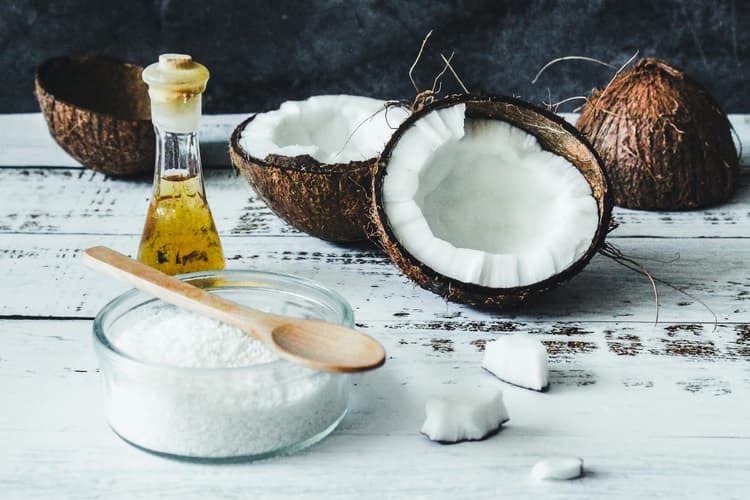Dog shampoo is specially formulated to meet the unique needs of our canine companions. Unlike human skin, a dog’s skin has a different pH level, is more sensitive, and is susceptible to specific types of irritation. As a result, dog shampoos are designed to be gentle, non-toxic, and tailored to protect and nourish both the skin and coat. This helps maintain your dog’s overall skin health and keeps their fur looking clean, shiny, and healthy.
What NOT to Use on Your Dog’s Skin or Coat
When considering alternatives to dog shampoo, it’s essential to avoid products that could harm your pet. Many everyday items contain ingredients that can irritate or even be toxic to dogs. Always prioritize your dog's safety and consult a veterinarian if you're unsure about a product.
Can I use human shampoo on my dog? No, human shampoo is not safe for dogs. The pH balance of canine skin is different from that of humans. Using human shampoo can strip away their natural oils, leading to dryness, itching, and irritation. Additionally, fragrances in human products can trigger allergic reactions—especially in dogs with sensitive skin. The American Kennel Club states that dogs only have three to five layers of skin cells. Humans have ten to fifteen.
Can you use cat shampoo on dogs? It’s not recommended. Cat shampoos are formulated specifically for feline needs and may contain ingredients like pyrethrins, which are toxic to dogs.
Can I use soaps with essential oils or fragrance? Avoid them. While they may smell pleasant, many essential oils are harmful to dogs—especially if ingested when they lick their fur afterward. Fragranced soaps can also irritate sensitive skin.
Can you use cleaning products or anything antibacterial? Absolutely not. Household cleaners and antibacterial soaps often contain harsh chemicals such as bleach, phenols, and alcohol. These substances can be absorbed through your dog’s skin or ingested during grooming, posing serious health risks.
Can I use alcohol-based wipes? Avoid alcohol-based wipes. They can dry out your dog’s skin, cause stinging sensations—especially on sensitive areas—and potentially worsen any cuts or abrasions. Always opt for pet-safe grooming wipes, and when in doubt, check the label or ask your vet.
No Dog Shampoo? What Can I Use Instead Safely

Household Substitutes
Out of dog shampoo and need a quick solution? Fortunately, you may already have a gentle, pet-safe alternative in your home. While these household items can serve in a pinch, they are only suitable for occasional use and should never replace a proper dog shampoo long-term.
Baby Shampoo
Can you use baby shampoo on dogs? It’s a common question—and the answer is yes, but with caution. Baby shampoo is formulated to be gentle on human skin and eyes, making it one of the safest human products to use on dogs in an emergency. Its mildness makes it a suitable one-time option, particularly for dogs with sensitive skin.
However, it’s important to remember that baby shampoo is not specifically designed for canine skin, which has a different pH balance. Frequent use can lead to dryness, irritation, or itching. So while it’s a reliable short-term substitute, it shouldn’t be part of your regular grooming routine.
Pros | Cons |
Gentle and tear-free | Not pH-balanced for dogs |
Easy on sensitive skin | Repeated use can dry out coat |
Available in most homes | Can leave residue on oily fur |
Baby Wipes
Baby wipes can be a convenient option for quick cleanups or spot cleaning—especially for dogs who dislike full baths. Choose unscented, alcohol-free wipes with no harsh chemicals to avoid irritating your dog’s skin. While handy for paws, ears, or light dirt, they’re not a substitute for regular bathing.
Dish Soap
If your dog gets into something greasy, sticky, or particularly messy, a small amount of mild dish soap (like Dawn) can be used in emergencies. Dish soap is excellent at cutting through oil and grime, but it's not pH-balanced for dogs and can strip the skin of natural oils. Use it sparingly and follow up with a moisturizing rinse or conditioner if available.
Pros | Cons |
Excellent at cutting grease and grime | Extremely drying on skin and coat |
Kills fleas on contact | Not suitable for regular use |
Affordable and widely available | May cause irritation on sensitive skin |
DIY Dog Shampoo
Prefer something homemade where you control the ingredients? This simple DIY dog shampoo recipe is effective, budget-friendly, and made with items you likely already have:
Ingredients:
1 cup white vinegar
1 cup dish soap
1 quart (4 cups) water
Instructions:
Mix all ingredients in a clean bottle or jar and shake gently before each use. This blend does a great job of cutting through dirt and grease while helping to neutralize odors.
Important Note:
Always test the mixture on a small patch of your dog’s skin before a full wash—especially if your dog has a history of skin sensitivity or allergies. While this recipe is safe for occasional use, it's not a substitute for dog-specific shampoos in the long run. There are some very easy recipes available at Dogster.
Pros | Cons |
Customizable with household ingredients | Vinegar can sting open wounds |
Cuts dirt and odor effectively | Still contains dish soap, which can be drying |
Inexpensive and quick to make | Needs patch test for sensitive dogs |
Natural Alternatives
Looking for something gentle and skin-friendly? While these natural options won’t foam like traditional shampoos, they can freshen your dog between full baths, soothe irritation, and help clean small areas.
Coconut Oil
Coconut oil is a great natural moisturizer, especially for dogs with dry or flaky skin. Applied topically, it can help soothe itchiness and hydrate rough patches. However, keep in mind that it doesn’t actually clean the fur—so think of it more as a skin treatment than a shampoo substitute.
Pros | Cons |
Natural moisturizer | Can make coat greasy if overused |
Soothes dry, itchy skin | Unable to remove dirt or debris |
Known to be antibacterial and antifungal | Must be wiped off thoroughly to properly remove |
Apple Cider Vinegar
Apple cider vinegar is a versatile natural remedy that can do more than just freshen up your dog’s coat. When diluted 50/50 with water, it can help relieve itching, neutralize odors, and support a healthy skin microbiome. Wag! recommends using it as a rinse or spray, especially after a romp outside.
Important Note:
Never apply apple cider vinegar to open wounds, raw skin, or irritated hot spots. It will sting and could worsen discomfort.
Pros | Cons |
Soothes itchy or irritated skin | Can sting on broken skin |
Acts as a deodorizer | Strong smell during application |
Natural and affordable | Must be diluted before use |
Lemon Juice
Lemon juice, when diluted, can be a natural flea repellent and deodorizer. It's important to ensure that the concentration is weak to prevent skin irritation. The best solution is 1 tablespoon per 2 cups of water.
Pros | Cons |
Natural deodorizer | Can irritate sensitive or broken skin |
Antibacterial properties | Needs heavy dilution |
Pleasant scent | May cause dryness |
Dry Shampoos
Need a quick, no-water cleanup? Dry shampoos are perfect for freshening up your dog between baths. While they don’t replace a full wash, they’re great for managing light odors and oil buildup when a bath just isn’t possible.
Cornstarch
Cornstarch is a simple, effective dry shampoo alternative. It helps absorb excess oils and neutralize odors in your dog’s coat. Just sprinkle a small amount over the fur, rub it in gently, and brush it out thoroughly.
Tip:
This method works best on short-haired dogs and for spot cleaning. But be prepared—it can get a little messy, so use it in an easy-to-clean area.
Pros | Cons |
Absorbs oil and odors | Can be messy during application |
Gentle on skin | Not effective on heavily soiled dogs |
Safe and natural | Harder to brush out on long fur |
Baking Soda
Baking soda is another excellent natural deodorizer. It can be used as a dry shampoo by lightly sprinkling it onto your dog’s coat, gently rubbing it in, and brushing it out. It’s safe, simple, and effective for neutralizing odors. However, like cornstarch, it won’t actually clean the fur or remove heavy dirt.
Pros | Cons |
Takes care of bad odors | Can be drying with frequent use |
Easy to apply and brush out | Shouldn’t be used near eyes or nose |
Inexpensive and safe | Can cause irritation if over-applied |
Other Emergency Grooming Solutions
Sometimes you just need a fast, safe way to clean up your pup—and fast. These last-resort options can help when you're truly in a pinch.

Castile Soap
Castile soap is a gentle, plant-based cleanser often made from olive or coconut oil. It’s milder than standard dish soap and can be a good option for quick, occasional washes. However, it's not specifically pH-balanced for dogs, so it should be used sparingly.
Pro Tip:
After washing, apply a small amount of coconut oil to dry areas to help restore moisture and soothe the skin.
Pros | Cons |
Plant-based and gentle | Not ideal for long-term use |
Effective cleanser | May dry out coat if used often |
Works in diluted form | Not all formulas are unscented or dog-safe |
Baby Wipes
Baby wipes can be a lifesaver for quick cleanups—perfect for muddy paws or freshening your dog’s backside after a walk. Just be sure to choose unscented, alcohol-free wipes to avoid irritating your dog’s sensitive skin.
According to Rover, they're not a replacement for bathing, but great for on-the-go cleanups or post-walk refreshes.
Pros | Cons |
Easy to use and carry | Not suitable for full-body cleaning |
Gentle on skin if unscented | Must check ingredients carefully |
Great for paws and problem areas | Can cause irritation with frequent use |
Quick Reference Table: What to Use and Why
While there are several safe alternatives to traditional dog shampoo, it’s important to use them thoughtfully and only when necessary. Every dog is different, so understanding your pet’s specific skin and coat needs—and checking with your veterinarian when in doubt—is key to choosing the right option.
Above all, your dog’s health, comfort, and well-being should always come first.
Substitute | Best For | Use Frequency | Key Notes |
Baby Shampoo | Full-body emergency wash | One-time | Tear-free but not dog pH-balanced |
Dish Soap | Greasy or flea-ridden coat | One-time only | Harsh on skin—rinse well |
DIY Dog Shampoo | General clean | Rare use | Must test on small patch first |
Coconut Oil | Moisturizing, soothing | Weekly spot use | Wipe excess to avoid buildup |
Apple Cider Vinegar | Itch relief, odor | Weekly spray | Dilute and avoid broken skin |
Lemon Juice | Light deodorizing | Rare | Must be heavily diluted |
Cornstarch | Dry coat refresh | As needed | Messy but effective on short coats |
Baking Soda | Mild deodorizing | As needed | Avoid face, use sparingly |
Castile Soap | Quick, gentle bath | Rare | Best diluted; follow with moisturizer |
Baby Wipes | Spot cleaning | As needed | Choose alcohol-free, unscented |
Final Thoughts: Clean Dogs Are Happy Dogs
Keeping our pups clean, comfortable, and healthy is the ultimate goal. It’s reassuring to know there are emergency options that can work in a pinch. But here’s the deal: while household and natural substitutes can help occasionally, they should never replace proper grooming products formulated specifically for dogs.
Why? Because your dog’s skin is far more sensitive than yours. Frequent use of products like dish soap or vinegar can disrupt the natural balance of their skin and coat, potentially causing dryness, irritation, or even infections. Use these alternatives wisely and only when absolutely necessary. Always observe how your dog reacts afterward.
Before trying any new product or homemade mixture, perform a quick patch test by applying a small amount to your dog’s skin. This simple step helps catch any adverse reactions early, preventing bigger problems down the road.
Remember, clean dogs aren’t just better smelling—they sleep better and enjoy cuddle time more, free from itching or discomfort. So be smart, be safe, and save these emergency tricks for when you really need them. Regular dog shampoo remains the best choice for your furry friend’s ongoing health and happiness.
Frequently Asked Questions
Can I use human shampoo on my dog?
In a pinch, human shampoo can be used, but it's preferable to use dog-specific shampoo to avoid potential skin irritation.
Can I use dish soap to wash my dog?
While dish soap can remove dirt, it may strip natural oils from your dog's coat, so it's not the ideal choice for regular use.
What if my dog has sensitive skin?
Opt for hypoallergenic or oatmeal-based shampoos designed for sensitive skin, even in the absence of regular dog shampoo.
Is Dove soap safe for dogs?
Dove is a mild soap, but it’s not for dogs. Using it once is usually okay. Do rinse thoroughly though. Regular use can lead to dryness or irritation.
Can I use Head and Shoulders on my dog?
Head and Shoulders has medicated ingredients. These are meant for human scalp issues. In some vet-approved cases, it might help with dog dandruff. Using it without guidance can irritate your canine’s skin.

